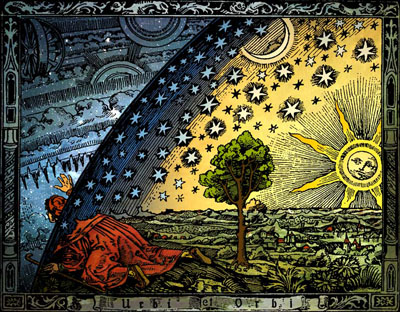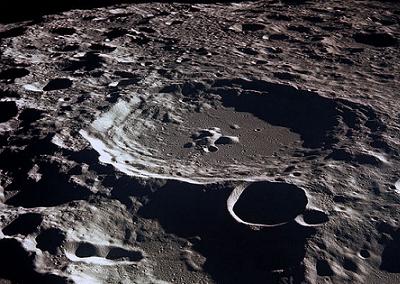REVELATION OF CREATION
January 31, 2008
by: jovial_cynic
by: jovial_cynic

image: Universum.jpg (cc) Heikenwaelder Hugo
Then God said, "Let there be light"; and there was light. (Genesis 1:3 ~NASB~)
I previously mentioned that the first verse of Genesis allows for a 13.7 billion year universe. I won't go into that too much, but for people who are reading this post without the context of the previous posts in the cynical theology section of my site, it might be useful to refer back. Knowing that the text aligns with the scientific age of the universe is a good starting point.
Genesis 1:3 is the first instance in the text of the spoken word of God, and it has been the source of a lot of terribly made bumper-stickers and t-shirts. For example:

This bumper sticker reflects a particularly odd interpretation of the text, when you consider that God created the heavens and the earth back in verse 1, and did not speak until we have light. The Big Bang theory (from which we derive the origin of all matter) would occur in Genesis 1:1, not Genesis 1:3. Anyhow, there's no sense in heading off on another tangent on account of a silly bumper sticker.
Day 1: Light
If we go back to the idea of creation as metaphor of God's relationship with man, the first step made by God is the revelation of light. What is this light? Did it not exist prior to God's spoken word? Or, in the case of revelation, was the light simply not visible from the surface of the earth?
Remember -- the earth was as a barren wasteland, formless and void. By this point in the text, we know that the earth exists, and because it exists, we have a sun; Astronomy 101 explains that you can't really have planets that don't start by orbiting a star; planetary formation requires the gravitational pull of a star. And if there's a star (or even a protostar) that has enough mass to harbor a planet, that star is far enough along in its lifespan to give off light.
However... the surface of the earth might not receive any light; cosmic impacts from meteors, asteroids, and comets would throw a tremendous amount of matter into the atmosphere, obscuring the heavens from view. Again - barren wasteland, formless and void. Take a look at this shot of the moon, and the description of "barren wasteland" makes a lot of sense:

image: Moon Craters (Public Domain)
But at some point on that "first day," (don't forget that the text has already allowed for a 13.7 billion-year long first day) God reveals Himself -- God is light (1 John 1:5). This is not the creation of light in Genesis 1:3. Rather, it is the revelation of light, and it is by that light that all other things become visible.

